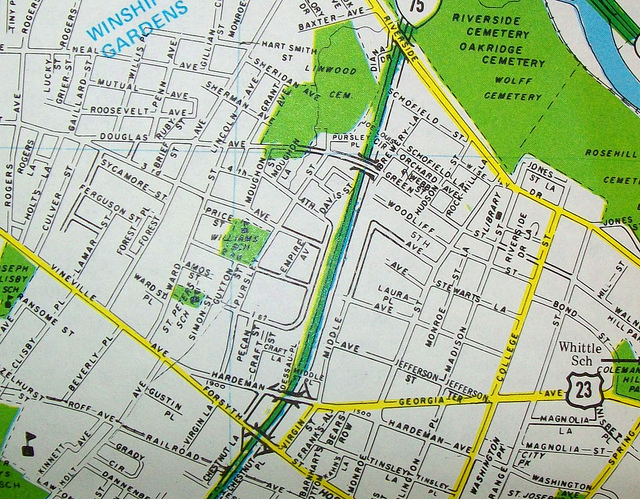
The potential of Open Gov in small to mid-sized cities
The Knight News Challenge is now open for its inspiration phase. It opens for applications on Feb. 19. Below, Knight’s Program Director in Macon, Beverly Blake, writes about the opportunities for Open Gov in cities across the country. Photo credit: Flickr user davecito.
Exactly what does Open Gov mean for a city or town? Is it scores of data easily available on your smartphone? Is it live broadcasting of city council meetings? Is it timely reporting by the media? It is all these, but the essence of Open Gov is communication for accountability.
It’s about finding ways to communicate effectively for and with residents. It’s about providing them the information they require to make good decisions for the future of the place they call home and to hold their leaders accountable for their decisions. It’s really pretty simple, but not at all easy.
Most communities in America are small to mid-sized and may not have the budget for a Chief Technology Officer or a Public Affairs Officer. Knight’s News Challenge has the opportunity to support ideas for toolkits for these smaller communities. It can help inform people how to use tech to connect with citizens and to take the wealth of tools already available and adapt them for implementation by a City Manager’s office for example. A major goal should be to finding ways to connect with those citizens who are not currently engaged and inviting them to be a part of the idea creation and decision making to improve local government.
Sometimes Open Gov is all about the basics – people want to know things like when will my trash be picked up, have there been recent crimes in my neighborhood and how can I get in touch with my city council representative to provide a suggestion? For residents, ideas born out of the News Challenge could help improve this information flow and pay immediate dividends.
We also want to know – how can the challenge support using the tools of the digital world to connect us in the physical world? Because the bottom line is that for government to work well for its constituents, face-to-face cooperation is key. After all, decisions are made when we come together to explain, understand, compromise and conclude. And it’s all with the goal of building informed and engaged communities.
By Beverly Blake, program director/Macon at Knight Foundation
Related: “News Challenge launches with an OpenIDEO twist” by Chris Barr, “Unanswered questions about Open Gov” by Tim O’Reilly, “Back to the future of self-governance: the promise of the Open Gov movement” by Mark Meckler and “The end of the beginning, lessons from open government so far” by Anil Dash and “First steps to Open Gov – getting your ducts in a row” by Susan Crawford
Recent Content
-
Journalismarticle ·
-
Journalismarticle ·
-
Journalismarticle ·


